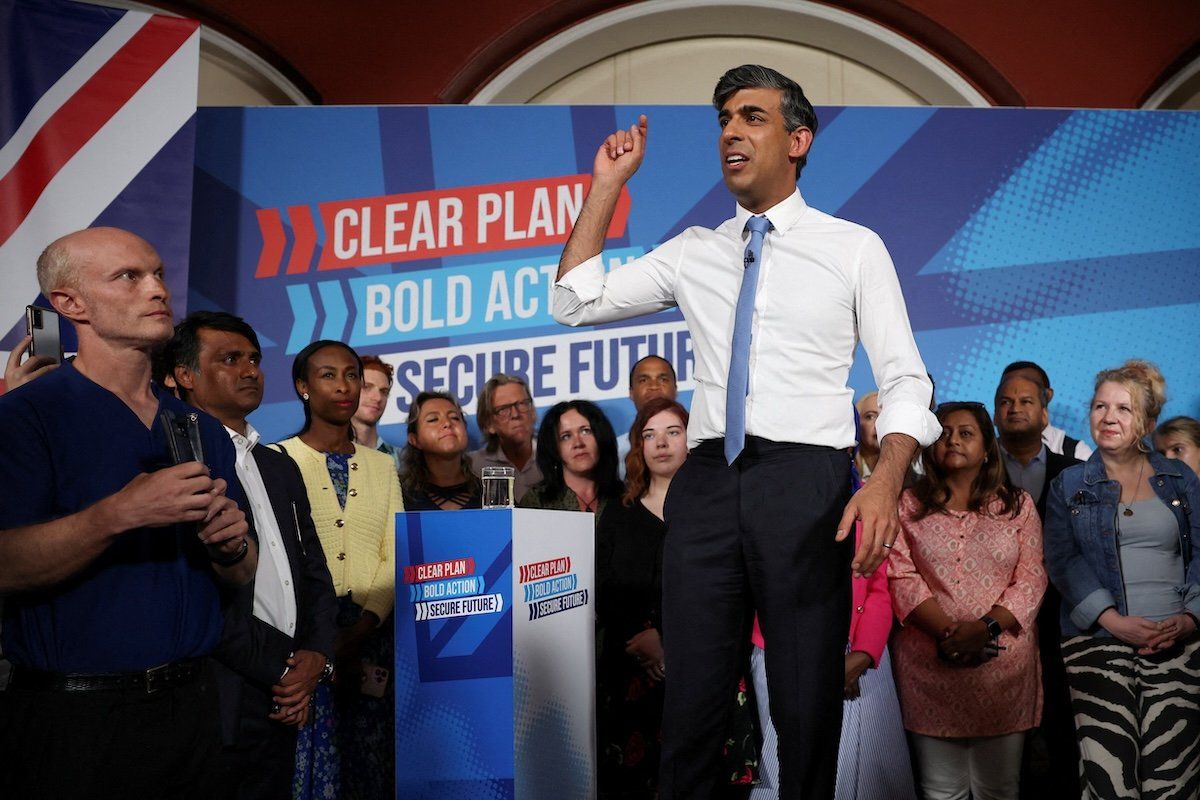Upcoming elections in France and the UK appear likely to deliver historic defeats for both countries’ ruling parties in a challenging electoral cycle for incumbents around the world. The polling shows the centrist alliance led by French President Emmanuel Macron’s Rennaissance party trailing both the far-right National Rally and the left-wing New Popular Front ahead of the legislative elections on June 30 and July 7 – pointing to an extremely difficult government formation process.
Meanwhile, the UK’s ruling Conservative party's dire polling ahead of the July 4 elections has prompted speculation of an “extinction event” that renders it virtually irrelevant in the next parliament. These votes follow others in countries including South Africa and India where the incumbents performed worse than expected.
What’s going on here? Eurasia Group expert Lindsay Newman says it’s a “long-COVID story” of the pandemic’s economic aftershocks fueling a political backlash. We asked her to explain.
This year is shaping up to be a bad one for incumbents. What are the lessons from elections so far?
In a series of surprise electoral outcomes, the ruling parties in South Africa and India both lost their parliamentary majorities, while the government-backed candidate lost Senegal’s presidential election to a little-known opposition figure. The driving narrative in all three is the long-COVID story – more specifically, historically high inflation levels.
Mexico, where ruling party candidate Claudia Sheinbaum easily won the presidential election, is one country that bucked the trend. Sheinbaum benefited as the hand-picked successor of the popular President Andrés Manuel López Obrador, who has advanced an agenda focused on addressing economic headwinds through job creation and wage increases.
Can you explain the long Covid effect a little more?
Following the economic dislocations of the pandemic, inflation has been elevated and persistent around the world. We have higher-for-longer cost of living pressures and unemployment rates – factors that are shaping how voters think and particularly what they think about their governments. Pocketbook issues always tend to be salient during elections, and many peoples’ pocketbooks seem especially light in the aftermath of the pandemic.
So, do you think this trend will continue this year — for example, in the outcomes of the elections in France, the UK, and the US?
That’s what the polling is telling us. The electoral reckoning with post-pandemic conditions, including the inflation shock, is a global story. The outcomes thus far in 2024 suggest this will remain a difficult cycle for incumbents. We have to expect more of the same in these upcoming elections.
Interestingly, the political backlash seems to be coming even in relatively healthy economic environments, right?
There is nuance to what we are seeing. Voters are responding to how they feel about the economic environment they find themselves in, rather than the statistics or the nuts and bolts of the economic outlook. In the case of the US, for example, the country’s economic recovery has been one of the bright spots of the post-pandemic period, yet it’s not perceived that way domestically, and surveys show that inflation, the economy, and immigration are key concerns for voters going into the fall.
There was a similar dynamic at play in India, which has one of the world’s fastest-growing economies, yet the felt experience of unemployment, rising prices, and inequities is likely behind the election results.
How worried are you about the potential for this backlash to destabilize political systems around the world? Where do we go from here?
Given the disruption and disorder we have seen over the last five to ten years, we have to expect more rather than less uncertainty ahead. This year’s voter backlash ties into another trendline I have been watching: a rising new radicalization of attitudes as well as actions. It has its roots in tectonic shifts in well-established public opinion, such as the 18.5-point average decline in support for Israel across dozens of countries registered by a January poll. Another driver is a broad political realignment away from the center and toward the poles.
The political consequences of these shifts are seen in the US in President Joe Biden’s outreach to younger and more progressive voting blocs and in Donald Trump’s appeals to his base. In Europe, nearly one-third of voters now opt for antiestablishment parties, either on the far right or far left, while in Latin America, antiestablishment candidates have secured a wave of victories in the post-pandemic period. We will get through the 2024 election cycle, but the risky times are likely to persist as these dynamics continue to ripple through the global system.
Edited by Jonathan House, senior editor at Eurasia Group.
